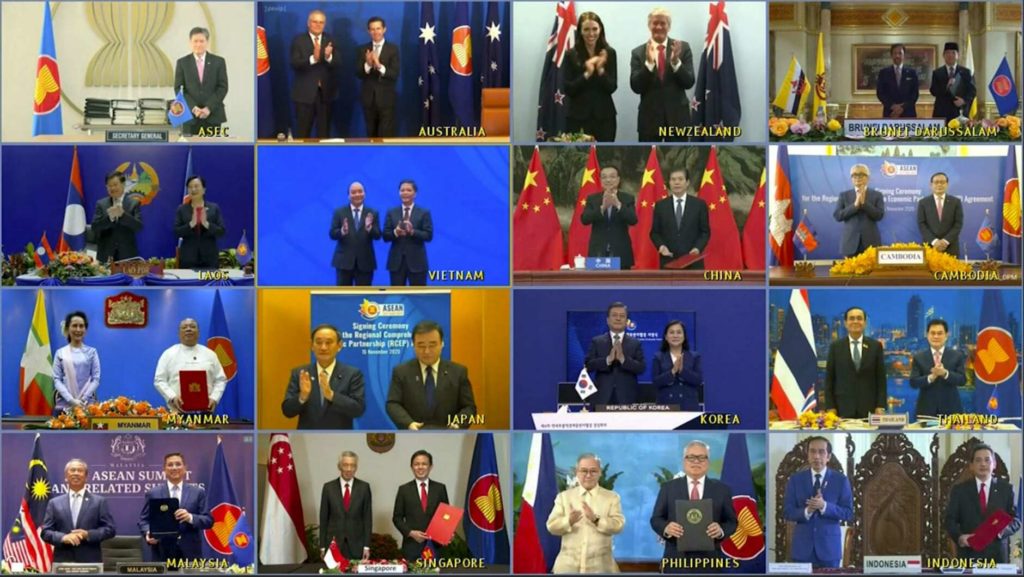The Regional Comprehensive Economic Partnership (RCEP) was concluded a few weeks ago. This agreement among Asia-Pacific countries has triggered widespread discussions in Europe.
Mr. Josep Borrell, EU High Representative for Foreign Affairs and Security Policy, wrote in a blog on RCEP that globalization is not dead and that Europe can be happy when others take the path of free and fair trade and multilateralism to enhance prosperity. I believe this is a view shared by many in the international community.
That being said, I have also noted the concerns expressed by some European businesses. In fact, the huge integrated market to be created by RCEP will present enormous opportunities rather than threats to European companies. For example, a highlight of RCEP is the rule on regional value content (RVC). European companies operating within the region are in a position to reach the 40% RVC level more easily and thus receive tariff benefits.
European companies could make the best of this rule, improve the flexibility of their industrial chains, and establish a more efficient and specialized system for division of labor in the Asia-Pacific region, which could help bring down the costs of finished products. I believe that RCEP will help increase the competitiveness of European companies. And a more open and prosperous Asia-Pacific will create more opportunities for and give a strong boost to the growth of Europe and beyond.
Some might say that RCEP is a victory of China. The truth is that it is not a victory of any specific county, but a victory of multilateralism and free trade. RCEP was initiated by ASEAN and concluded by 15 Asia-Pacific countries of different levels of development, cultural backgrounds and political systems. The fact that these countries managed to reach agreement despite headwinds against globalization speaks volumes about the strong appeal of free trade and win-win cooperation.
In the negotiations, multilateralism was a common language that could be understood by all without translation. In such endeavors, China upholds the principle of extensive consultation, joint contribution and shared benefits. China never opts for so-called selective multilateralism, still less does China believe that multilateralism should be used as an instrument to expand anyone’s geopolitical influence.
Some also say that RCEP is a wake-up call for Europe and that the EU should expand its free trade networks more quickly. Such a sense of urgency is understandable. It took eight years for RCEP to come to fruition. The China-EU investment agreement negotiation has been going on for seven years. Not long ago, the two sides held the 34th round of talks, with good progress on the outstanding issues of the text and the negative list.
Chinese President Xi Jinping recently reaffirmed the commitment to concluding the investment agreement negotiation as scheduled. We are hopeful that teams of the two sides could seize the opportunities and finish the homestretch in a more forward-looking and pragmatic way, opening up new horizons and more possibilities for business investment by Chinese and European companies. It would also be high time to launch the China-EU FTA process sooner rather than later, lending fresh impetus to global economic recovery and prosperity.


